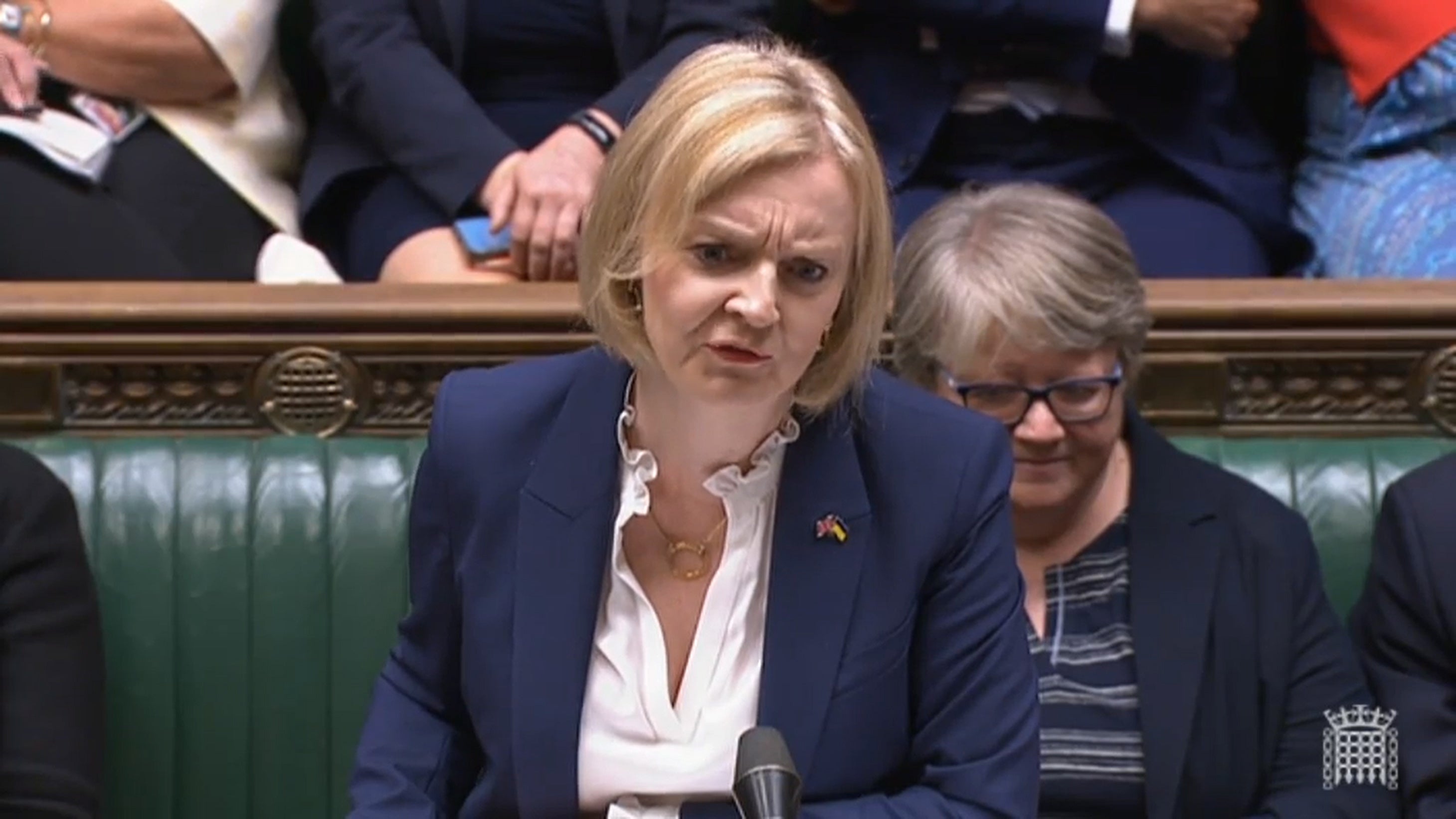Keir Starmer won the argument at Liz Truss’s first Commons outing as prime minister
Suddenly, the smoke and mirrors of Boris Johnson have cleared, and we can see what the battleground looks like – through the energy crisis all the way up to the next election, writes John Rentoul


It won’t last, but Prime Minister’s Questions resembled a serious political debate today. The leader of the opposition asked a simple question and the new prime minister answered it without deflection, deviation or bamboozle.
Keir Starmer’s first question was the obvious one that has puzzled anyone who has been following the anonymous briefings about Liz Truss’s plan to help people with energy bills. After a perfunctory welcome – “Can I congratulate the prime minister on her appointment” – he asked: “When she said in her leadership campaign that she was against windfall taxes, did she mean it?”
That is indeed The Question. Truss did not merely say that she tended to be a bit reluctant about windfall taxes, but she said she would not increase the windfall tax already imposed by Boris Johnson and Rishi Sunak. At the last hustings, only a week ago, she agreed that we could read her lips: “No new taxes.”
I assumed she didn’t mean it. In normal times, there are good arguments against windfall taxes. They increase uncertainty for business and deter investment. She repeated those arguments today, as if reading out a briefing from a year ago. But in abnormal times, the case against becomes weaker. And in times when the energy prices may triple as the result of war, the economic case against a windfall tax falls away altogether.
The oil and gas companies have done nothing to deserve the exceptional profits they are making from high world prices. All their investment decisions were made on the assumption of normal prices, so taking a proportion of excess profits in tax should not affect their plans.
On the other hand, the case in favour a windfall tax becomes hard to resist. Starmer put it succinctly in his follow-up questions. He referred to the huge cost of tomorrow’s plan to help people with their bills: “The political choice is: who is going to pay? Is she really saying that she is going to leave these vast excess profits on the table and make working people foot the bill?”
She merely said that she would be making an announcement to the Commons tomorrow, to give people “the certainty that they could get through the winter”.
Starmer posed as the responsible custodian of the public finances: “The money’s got to come from somewhere. She knows that every single pound in excess profits she chooses not to tax is an extra pound on borrowing that working people will be forced to pay back for decades to come.”
She replied: “This country will not be able to tax its way to growth.” Which is an answer to a general question about taxation, rather than to the specific question about the exceptional situation of high global energy prices.
I assumed that Truss would have U-turned by now. I assumed she and Kwasi Kwarteng, the chancellor, would simply increase Sunak’s windfall tax and argue, if pressed, that it wasn’t a “new tax”. And I assumed she would get away with it because most voters want to see the big corporations pay, especially if they are sitting on vast sums of unearned money.
But no, she seems determined to do the wrong thing. Perhaps Kwarteng has some clever scheme that will be unveiled tomorrow, by which the oil and gas producers pay towards the plan to keep prices for the consumer at current levels, in a way that isn’t described as “a tax”.
In the meantime, though, it meant that she comprehensively lost the argument in her first Prime Minister’s Questions. Her only successful counterpunch came at the end: “There’s nothing new about a Labour leader who is calling for more tax rises.” It was a rhetorical point, rather than an answer to Starmer’s last question, but it went down well with the Tory benches behind her.
It set out the terms of the argument for the period up to the next election. She is not interested in the finer points of the economic debate; she intends to persist with the simple message that carried her to the leadership of her party: that people want to keep more of their own money.
To keep up to speed with all the latest opinions and comment, sign up to our free weekly Voices Dispatches newsletter by clicking here
Starmer is gambling that it won’t work: that the voters do worry about excessive public debt, and are keen to tax big companies as an alternative. That is why he switched his line of questioning halfway through from the case for a higher windfall tax to that for higher corporation tax generally.
If the world energy crisis is over by the next election – or, at least, if it is heading towards a more normal market – Labour will still be able to propose an increase in corporation tax to pay for its (presumably modest) pledges. The same corporation tax rise planned by Sunak for next year that will shortly be cancelled by Kwarteng.
Truss’s gamble is that her message of tax cuts will trump Labour’s plan to raise taxes on unpopular corporates – it was notable that Starmer said Truss wanted to give Amazon a tax handout in one of his later questions.
Suddenly, the smoke and mirrors of Boris Johnson have cleared, and we can see what the battleground looks like – through the energy crisis all the way up to the next election. It is an unexpectedly clear ideological contest between tax cuts and corporate tax rises.






Join our commenting forum
Join thought-provoking conversations, follow other Independent readers and see their replies
Comments